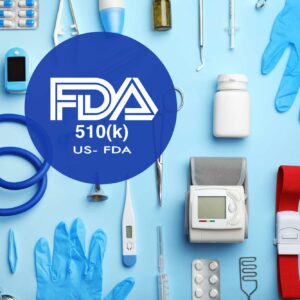FDA and USDA Regulatory Updates on Lab Grown Meat
Summer is synonymous with time at the beach, popsicles and grilling. But soon enough, you may be picking up cell-grown meat on your next grocery run. The U.S. Department of Agriculture (USDA) recently approved two companies, Good Meat and Upside Food, to sell lab-grown and cell-cultivated chicken. Singapore became the first country to approve the sale of cell-cultivated meat in 2020. Now, the United States becomes the second.
Cellular agriculture as it has been called, is slated to provide a safer alternative to slaughtering animals, and to provide significant economic and environmental opportunity. Traditional methods of raising animals for slaughter have several drawbacks, including effects on climate change and greenhouse gas emissions such as carbon dioxide and methane. Reports show that around a quarter of global greenhouse gas emissions are from food production, and more than half of food production’s greenhouse gas emissions are from the production of animal-based foods. In addition to helping with sustainability, including reducing water needs and land footprint, proponents of lab-grown meat also say that production does not require antibiotics.
So how does cellular agriculture work and how does the U.S. regulate it?
The process for cultivating meat involves isolating tissue samples from living animals, identifying cells that can multiply, and then growing their cells with essential nutrients so the cells can replicate naturally. These cells are used in making the products. As an emerging area of food science, the FDA and USDA’s Food Safety and Inspection Service (FSIS) share jurisdiction over these products to ensure they are safe and accurately labeled. Following a formal agreement in March 2019, FDA has been tasked to oversee cell collection, cell banks and cell growth and differentiation. FDA transitions oversight to USDA-FSIS during the harvesting stage of the cell culture process. USDA-FSIS then oversees further production and labeling of these products. The FDA-USDA’s formal agreement is based on the animal species used as the original source of cultured cells:
- The FDA regulates live animals used as food up until they are presented for slaughter.
- USDA-FSIS regulates the slaughter and processing of animals that are intended for human consumption and regulated under the Federal Meat Inspection Act (FMIA) or the Poultry Products Inspection Act (PPIA).
- For cell-cultured food, FDA regulates the cell collection, banking, growth and differentiation of the cells, while USDA-FSIS regulates species covered under the FMIA and PPIA at harvest through processing and labeling.
FDA also offers a voluntary pre-market consultation process for products derived from cultured animal cells to evaluate the safety of food made from cultured animal cells before they enter the market. FDA evaluates the production process and cultured cell material made by the production process, including the establishment of cell lines and cell banks, manufacturing controls, inputs and component materials to balance food technology innovation with food safety. Additionally, FDA and USDA continue to have inspection authority over cultured cell material. While FDA intends to conduct routine inspections at cell banks and facilities where cells are cultured, differentiated, and harvested, USDA intends to conduct inspections where cells derived from livestock and poultry are harvested.
As this emerging area of food science unfolds, we’ll continue to monitor a company’s marketing requirements for cell-based meat products, including the use of growth hormones in the cultivation of these products, and how any new and unintended proteins or byproducts that will be introduced into the finished product will need to be labeled.
For questions on FDA and USDA regulation of cell-based meat products, and for any other questions on regulatory compliance or enforcement, please email info@garg-law.com.


